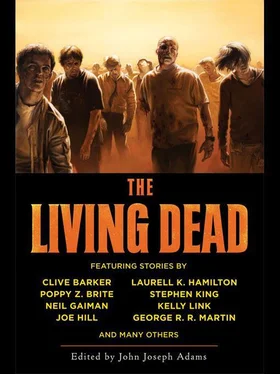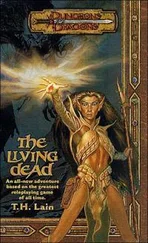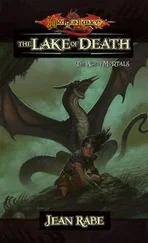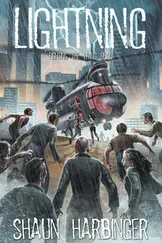Dey shook her head. “Seniors win that one every time.”
“Hispanics never vote,” Lewis said. “We might as well wrap Florida up with a little bow and send it to Stoddard.”
Dey handed around another sheet. She’d orchestrated the moment for maximum impact, doling it out one sheet at a time like that. Lewis slumped in his seat, probing his scars as she worked her way through the list: Michigan, New York, Ohio, all three delegate rich, all three of them neck-and-neck races. Three almost physical blows, too, you could see them in the faces ranged around the table.
“What the hell’s going on here?” Lewis muttered as Dey passed out another sheet, and then the news out of Texas rendered even him speechless. Stoddard had us by six points. I ran through a couple of Alamo analogies before deciding that discretion was the better part of wisdom. “I thought we were gaining there,” Lewis said.
Dey shrugged. I just read the numbers, I don’t make them up.
“Things could be worse,” Libby Dixon said.
“Yeah, but Rob’s not allowed to do Crossfire any more,” Lewis said, and a titter ran around the table. Lewis is good, I’ll give him that. You could feel the tension ease.
“Suggestions?” Burton said.
Dey said, “I’ve got some focus group stuff on education. I was thinking maybe some ads clarifying our—”
“Hell with the ads,” someone else said, “we’ve gotta spend more time in Florida. We’ve got to engage Stoddard on his ground.”
“Maybe a series of town meetings?” Lewis said, and they went around like that for a while. I tried to listen, but Lewis’s little icebreaker had reminded me of the dreams. I knew where I was—37,000 feet of dead air below me, winging my way toward a rally in Virginia—but inside my head I hadn’t gone anywhere at all. Inside my head, I was stuck in the threshold of that dream house, staring out into the eyes of the dead.
The world had changed irrevocably, I thought abruptly.
That seems self-evident, I suppose, but at the time it had the quality of genuine revelation. The fact is, we had all—and I mean everyone by that, the entire culture, not just the campaign—we had all been pretending that nothing much had changed. Sure, we had UN debates and a CNN feed right out of a George Romero movie, but the implications of mass resurrection—the spiritual implications—had yet to bear down upon us. We were in denial. In that moment, with the plane rolling underneath me and someone—Tyler O’Neill I think it was, Libby Dixon’s mousy assistant—droning on about going negative, I thought of something I’d heard a professor mention back at Northwestern: Copernicus formulated the heliocentric model of the solar system in the mid-1500s, but the Church didn’t get around to punishing anyone for it until they threw Galileo in jail nearly a hundred years later. They spent the better part of a century trying to ignore the fact that the fundamental geography of the universe had been altered with a single stroke.
And so it had again.
The dead walked.
Three simple words, but everything else paled beside them—social security, campaign finance reform, education vouchers. Everything .
I wadded Dey’s sheet into a noisy ball and flung it across the table. Tyler O’Neill stuttered and choked, and for a moment everyone just stared in silence at that wad of paper. You’d have thought I’d hurled a hand grenade, not a two-paragraph summary of voter idiocy in the Lone Star State.
Libby Dixon cleared her throat. “I hardly thin—”
“Shut up, Libby,” I said. “Listen to yourselves for Christ’s sake. We got zombies in the street and you guys are worried about going negative?”
“The whole…” Dey flapped her hand. “… zombie thing, it’s not even on the radar. My numbers—”
“People lie , Angela.”
Libby Dixon swallowed audibly.
“When it comes to death, sex, and money, everybody lies. A total stranger calls up on the telephone, and you expect some soccer mom to share her feelings about the fact that grandpa’s rotten corpse is staggering around in the street?”
I had their attention all right.
For a minute the plane filled up with the muted roar of the engines. No human sound at all. And then Burton—Burton smiled.
“What are you thinking, Rob?”
“A great presidency is a marriage between a man and a moment,” I said. “You told me that. Remember?”
“I remember.”
“This is your moment, sir. You have to stop running away from it.”
“What do you have in mind?” Lewis asked.
I answered the question, but I never even looked Lewis’s way as I did it. I just held Grant Burton’s gaze. It was like no one else was there at all, like it was just the two of us, and despite everything that’s happened since, that’s the closest I’ve ever come to making history.
“I want to find Dana Maguire,” I said.
I’d been in politics since my second year at Northwestern. It was nothing I ever intended—who goes off to college hoping to be a senate aide?—but I was idealistic, and I liked the things Grant Burton stood for, so I found myself working the phones that fall as an unpaid volunteer. One thing led to another—an internship on the Hill, a post-graduate job as a research assistant—and somehow I wound up inside the beltway.
I used to wonder how my life might have turned out had I chosen another path. My senior year at Northwestern, I went out with a girl named Gwen, a junior, freckled and streaky blonde, with the kind of sturdy good looks that fall a hair short of beauty. Partnered in some forgettable lab exercise, we found we had grown up within a half hour of one another. Simple geographic coincidence, two Californians stranded in the frozen north, sustained us throughout the winter and into the spring. But we drifted in the weeks after graduation, and the last I had heard of her was a Christmas card five or six years back. I remember opening it and watching a scrap of paper slip to the floor. Her address and phone number, back home in Laguna Beach, with a little note. Call me sometime , it said, but I never did.
So there it was.
I was thirty-two years old, I lived alone, I’d never held a relationship together longer than eight months. Gran was my closest friend, and I saw her three times a year if I was lucky. I went to my ten year class reunion in Evanston, and everybody there was in a different life-place than I was. They all had kids and homes and churches.
Me, I had my job. Twelve hour days, five days a week. Saturdays I spent three or four hours at the office catching up. Sundays I watched the talk shows and then it was time to start all over again. That had been my routine for nearly a decade, and in all those years I never bothered to ask myself how I came to be there. It never even struck me as the kind of thing a person ought to ask.
Four years ago, during Burton’s re-election campaign for the Senate, Lewis said a funny thing to me. We’re sitting in a hotel bar, drinking Miller Lite and eating peanuts, when he turns to me and says, “You got anyone, Rob?”
“Got anyone?”
“You know, a girlfriend, a fiancée, somebody you care about.”
Gwen flickered at the edge of my consciousness, but that was all. A flicker, nothing more.
I said, “No.”
“That’s good,” Lewis said.
It was just the kind of thing he always said, sarcastic, a little mean-hearted. Usually I let it pass, but that night I had just enough alcohol zipping through my veins to call him on it.
“What’s that supposed to mean?”
Lewis turned to look at me.
“I was going to say, you have someone you really care about—somebody you want to spend your life with—you might want to walk away from all this.”
Читать дальше
Конец ознакомительного отрывка
Купить книгу












